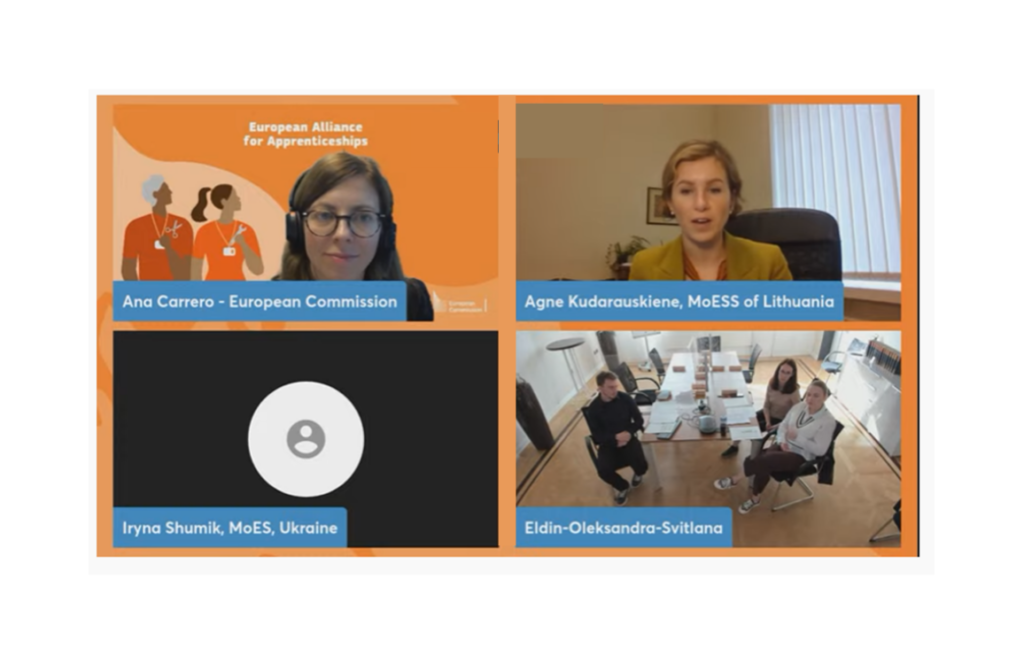Round-up: High-Level Discussion on Supporting Ukrainians in the EU through apprenticeships
28/10/2022

On October 27, the European Commission and the European Alliance for Apprenticeships hosted a High-Level Discussion on Supporting Ukrainians’ social and economic insertion in the EU through apprenticeships.
The event was moderated by Ana Carrero Yubero, Deputy Head of Unit – Vocational Education and Training, DG EMPL. The discussions were opened with remarks from Anatolii Garmash from the European Training Foundation, who highlighted that apprenticeships are important tools for Ukrainian refugees in the EU, as they:
- Help connect refugees directly to the labour market
- Assist access to formal education and training
- Fill the gaps in skills to reach quality employment
Both Garmash and Iryna Schumik – Director General of the Directorate of Vocational Education, Ministry of Education and Science, Ukraine – agreed that there is a large potential of micro-credentials in facilitating apprenticeships for Ukrainian refugees.
Micro-credentials are the record of learning outcomes for a small volume of learning. Their recognition across Europe is a priority area for many stakeholders in the lifelong learning field. The recognition of micro-credentials in adult education and apprenticeships would not only facilitate the recognition of specific skills and competences across Europe, but also allow for a combination of formal training and company-specific apprenticeships.
The discussion then turned to the example of how Lithuania has been supporting Ukrainians through apprenticeships. Agne Kudarauskiene, Minister of Education, Science and Sport in Lithuania, outlined some of the key adaptations the country has taken to facilitate apprenticeship uptake among Ukrainian refugees. Some of the measures include creating practical and written tests for existing apprenticeship and VET cycles, allowing Ukrainians without proof of former qualifications to demonstrate their capacity to join in with an existing or new vocational training cycle.
The discussion also invited two Ukrainian apprentices based in Duisburg, Germany, to share their experiences. Oleksandra Telna and Ms Svitlana highlighted how they learnt about apprenticeship opportunities via their German language and cultural integration courses, provided by the department of North-Rhineland Westphalia. They concluded that coming to a VET school not only allowed them to learn about their trade, but also to integrate with their host country’s society.
The talks concluded by all panelists agreeing that more should be done on the EU level to provide psychological support and further language support to Ukrainians seeking apprenticeships.
You can watch the recording of the discussion here and you can read EARLALL’s statement on the War in Ukraine (March 2022) here.




